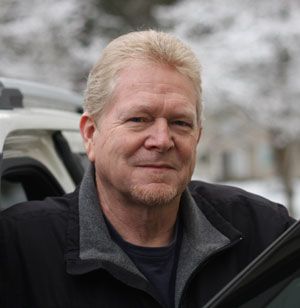As winter wanes
As winter wanes, I am glad for many things. My apologies to those who love winter, but I am markedly joyous when we register the first 50-degree-plus temperatures around this juncture of winter.
While it may be the only time of year that 50 degrees feels warm, watching small rivers of water run from the piles of melting snow makes me gleeful. This temperature is also a signal that winter’s ravaging effects on vehicles are about to cease for a year, and I’m especially glad for that.
Those unwelcome effects have become exaggerated ever since private parking lot owners, along with city, county and state agencies have all adopted the rampant use of liquid deicer in winter. I guess I’m “old school” when it comes to winter road preparation — prudent plowing, along with a bit of sand on grades and at intersections always seemed effective and more environmentally friendly to me.
I’m unaware of the chemical makeup of that likely-caustic melter, and I’m not sure I want to know, since millions of gallons of the liquid must leach toward our aquifer every winter.
What I do know is that the dreadful liquid-in-question is a very effective corrosive agent. My vehicle’s painted alloy wheels are a testament to that. Each tiny nick in their silver paint has grown to a blistered lump on top of corroded aluminum, and the narrow crevice around the small center caps traps enough of the offending agent to have created a decorative, bubbly circle on the rim around each cap. The wheels have to be removed to take the caps off, so periodic winter cleaning is prohibitive. Next year, maybe I’ll have the wheels repainted and leave the small caps off.
With that sort of corrosion readily visible, there are certainly plenty of other areas where the liquid hides out. That’s why it’s a good idea to treat your car or truck to an automatic car wash periodically in winter. I prefer the “touchless” versions, which use high-pressure nozzles to blast every part the vehicle.
The liquid melting product currently being used may melt snow and ice, but it has all the qualities needed for destroying metal: corrosive, clingy, slow to evaporate, and spreads on its own. Sand may create some dust, but any liquid deicer that doesn’t end up in the aquifer will eventually dry out and end up as undesirable particulate in the air. Again, I’d welcome the use of sand, combined with frequent sweeping between storms to keep dust under control
But alas, we’re probably saddled with this liquid for many winters to come. That’s because today’s average driver demands clear roads at all times, and dumping endless gallons of deicer is the latest and easiest way to accomplish that.
Turning on ice-stuck wipers is another consequence of winter. I always cringe when I forget to manually break them loose, and their activation first stalls the wiper motor then practically tears the blades off when they suddenly move. That, along with blades scraping over built-up ice and the arms straining amidst built-up snow certainly takes a toll on windshield wiper systems.
Cold winter startups place plenty of extra wear on our engines too. Oil takes longer to get to vital components at 0-20 degrees than it does at 70-90 degrees, taking an extra “toll” with each winter startup. Because of the more viscous (thicker) winter properties of oil, starter motors also work much harder to turn the engine in cold conditions. When they start out extra-cold, transmissions and every other moving mechanical component suffer additional wear during the extended time needed to reach operating temperature.
I’ve not had a winter-weather-related accident, but I’m sure that those who have are sick of winter. I know of one reader who had a rear-end collision with his new truck because its “all-season” tires had less grip than those of the one he traded. I’ll bet he’s ready for spring!
As winter wanes, I’m excited to turn the outside water back on. Then, I can give my vehicles a well-earned “spa treatment,” reversing the ravages of winter’s snow, ice, freezing temperatures and deicer.
Readers may contact Bill Love via e-mail at precisiondriving@spokesman.com.
